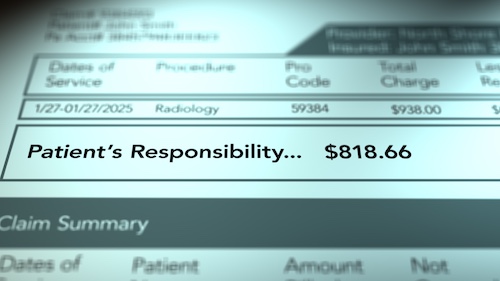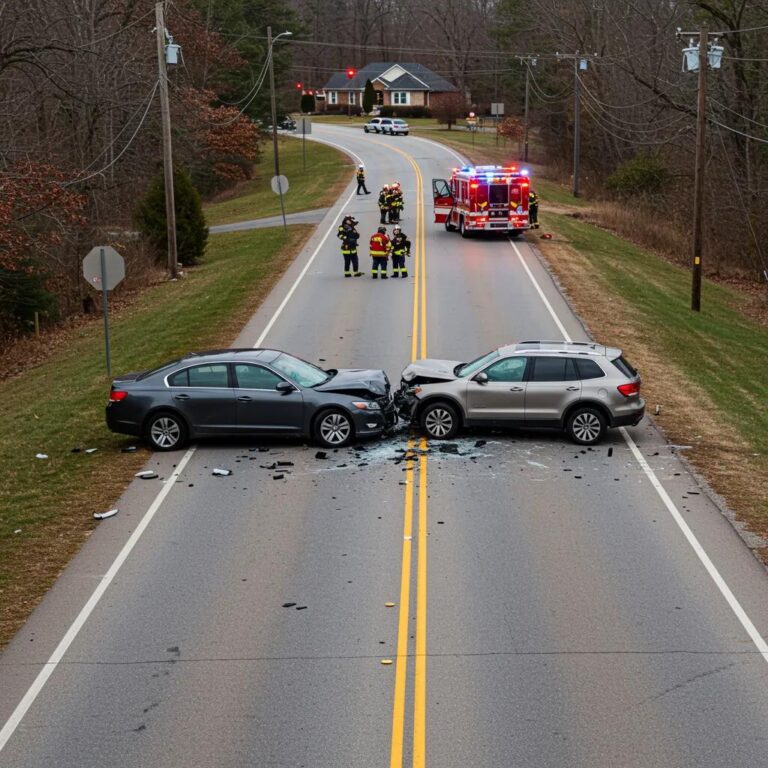Who Pays Your Car Accident Medical Bills in Georgia?
Medical bills can start piling up immediately after a car accident. Emergency care, hospital stays, and follow-up treatment all come at a cost. In Georgia, who pays those bills depends on insurance coverage, fault, and legal options available to the injured party.
In this blog, you’ll learn how car accident medical bills are handled in Georgia, what insurance coverage may apply, and why working with an experienced Kennesaw car accident attorney can help you secure the compensation needed to cover your medical expenses.
Immediate Medical Attention: Who Covers the First Bills?
The first medical bills after a car accident can arrive quickly. Understanding who pays them depends on your insurance coverage and available options under Georgia law.
Emergency Services Are Billed to the Injured Party
After a car crash, emergency responders often provide ambulance services, transport to the emergency room, and other immediate medical care. These services are necessary to treat injuries sustained and protect your health. However, the medical provider usually bills the injured person directly, regardless of who caused the accident. This means you may receive hospital bills and other medical expenses before any insurance company has accepted fault.
Health Insurance May Pay First, But Not Always Fully
If you carry health insurance, your health insurance provider may pay some of your medical costs early. This depends on the terms of your health insurance plan. You may still be responsible for deductibles, co-payments, or services not covered. Some health insurers wait to process claims until they know the outcome of a personal injury claim. Others pay upfront but reserve the right to seek reimbursement from any financial compensation you later receive.
Medical Payments Coverage Can Help Quickly
If you have medical payments coverage, also called MedPay, under your auto insurance policy, it can pay for reasonable and necessary medical treatment following a motor vehicle accident. MedPay can help with emergency room visits, ambulance services, and other medical services regardless of fault. In Georgia, MedPay is optional but valuable for managing immediate medical expenses. According to Georgia Code O.C.G.A. § 33-34-2, MedPay is a form of first-party insurance that covers medical bills up to the policy limit.
What If You Have No MedPay or Health Insurance?
If you do not have medical payments coverage or health insurance coverage, you may have to pay out of pocket or delay payment until your personal injury claim is resolved. Some healthcare providers may agree to a medical lien, which allows them to delay collection until you receive a settlement from the at fault driver’s insurance company.
Liability and Fault: Who Should Pay for Your Medical Bills?
After a car accident, determining fault is critical because it affects who is responsible for your medical bills.
Georgia Is a Fault-Based State
Georgia uses a fault-based system for car accidents. This means the driver who caused the accident is legally responsible for the damages. That includes medical expenses, lost wages, and other costs tied to the personal injury claim. The at fault driver’s insurance company must pay for the injured party’s medical bills, up to the policy limits.
Liability Insurance Covers Medical Costs
The at fault driver’s auto insurance policy typically includes liability coverage. This covers medical bills, ambulance services, physical therapy, and other related expenses. If you suffered injuries in a car crash, you can file a claim with the other driver’s insurance company to seek reimbursement for the medical expenses incurred. This process often requires submitting medical records, billing statements, and proof of treatment.
Proving Fault Is Key to Getting Medical Bills Paid
To recover your medical costs, you must show that the other driver was responsible. This often involves police reports, witness statements, photographs, and other evidence. Georgia law allows injury victims to recover damages from the person or party that caused them harm. This right is supported by Georgia Code O.C.G.A. § 51-1-6, which gives injured parties the ability to seek compensation when another person’s negligence leads to injury.
Shared Fault Can Reduce Your Compensation
If you are partly at fault for the accident, your compensation may be reduced. Georgia follows the modified comparative negligence rule. If you are found to be 50 percent or more at fault, you cannot recover damages. If your fault is below 50 percent, your compensation is reduced by your percentage of fault. This can affect how much of your medical bills are ultimately paid by the other driver’s insurance company.
What If the At-Fault Driver’s Insurance Isn’t Enough?
Sometimes the at fault driver’s insurance coverage does not fully cover the medical bills and other losses caused by the accident.
Georgia’s Minimum Liability Insurance Limits
In Georgia, drivers are required to carry liability insurance, but the minimum limits are often too low to cover serious injuries. The current required minimums are $25,000 per person for bodily injury and $50,000 per accident. These limits can be quickly exhausted if the injured party needs surgery, physical therapy, or long-term medical care. If your medical expenses exceed these limits, the at fault driver’s insurance company is not obligated to pay beyond the policy maximum.
Uninsured and Underinsured Motorist Coverage Can Help
Uninsured motorist (UM) and underinsured motorist (UIM) coverage protects you when the other driver lacks sufficient insurance. This coverage is optional in Georgia, but it can be included in your auto insurance policy. If the other driver carries liability insurance that does not fully cover your medical bills, your UIM coverage may pay the difference. You must file a claim with your own insurance provider to use this benefit.
Health Insurance May Cover Remaining Medical Bills
If your auto insurance does not include UM or UIM coverage, your health insurance plan may pay some of the outstanding medical bills. This depends on your health insurance company’s rules. Even if your health insurer pays your bills, they may later seek reimbursement from your personal injury settlement through a process called subrogation. Keep records of every medical service to avoid duplicate payments or missed expenses.
You May Have to Sue the At-Fault Driver Personally
If no insurance coverage is available to pay your remaining medical costs, you may consider filing a personal injury lawsuit directly against the at fault driver. However, if that person has limited assets, collecting the full amount may be difficult. A car accident attorney can help determine whether this option makes sense and what legal options exist for seeking compensation.
Legal Options to Maximize Compensation
If your medical bills are high and insurance coverage is limited, legal action may help you recover the full value of your losses.
A Car Accident Attorney Can Strengthen Your Claim
Hiring a car accident attorney can help you collect and present the evidence needed to support your personal injury claim. An attorney reviews medical records, accident reports, witness statements, and insurance policies to build a strong case. Legal support can also prevent mistakes that may reduce your compensation, such as missing deadlines or providing unclear documentation to an insurance provider.
Negotiating with the Insurance Company
Insurance companies often try to settle claims for less than the actual cost of medical expenses and other losses. A car accident lawyer negotiates on your behalf to reach a fair settlement. This includes seeking reimbursement for ambulance services, emergency room care, physical therapy, prescription medications, and ongoing treatment. A fair settlement should reflect the total medical expenses incurred and future care needed due to the injuries sustained.
Filing a Personal Injury Lawsuit
If negotiations fail or the insurance company denies your claim, you may file a personal injury lawsuit. This legal option allows you to present your case in court. A judge or jury can then decide fault and determine the amount of financial compensation. Georgia law allows injured parties to seek damages for medical bills, lost wages, pain and suffering, and other related losses. Filing suit may also be necessary if the at fault party refuses to accept responsibility.
Protecting the Value of Your Settlement
You must also consider liens and subrogation claims when calculating how much of your settlement you will keep. Health insurers, medical providers, and other parties may claim part of your recovery. A car accident attorney can help reduce or negotiate these claims to protect your financial recovery. Managing these issues early can prevent delays in receiving your compensation.
Consult With an Experienced Kennesaw Car Accident Attorney ASAP!
If you’re facing medical bills after a car accident, you don’t have to handle it alone. Our team at GMV Law Group understands the pressure that comes with serious injuries, mounting expenses, and insurance company delays. A dedicated Kennesaw car accident attorney can review your case, explain your legal options, and fight to recover the compensation you need for medical treatment, lost income, and more.
Contact us at 404-975-4878 for a free claim review today!





